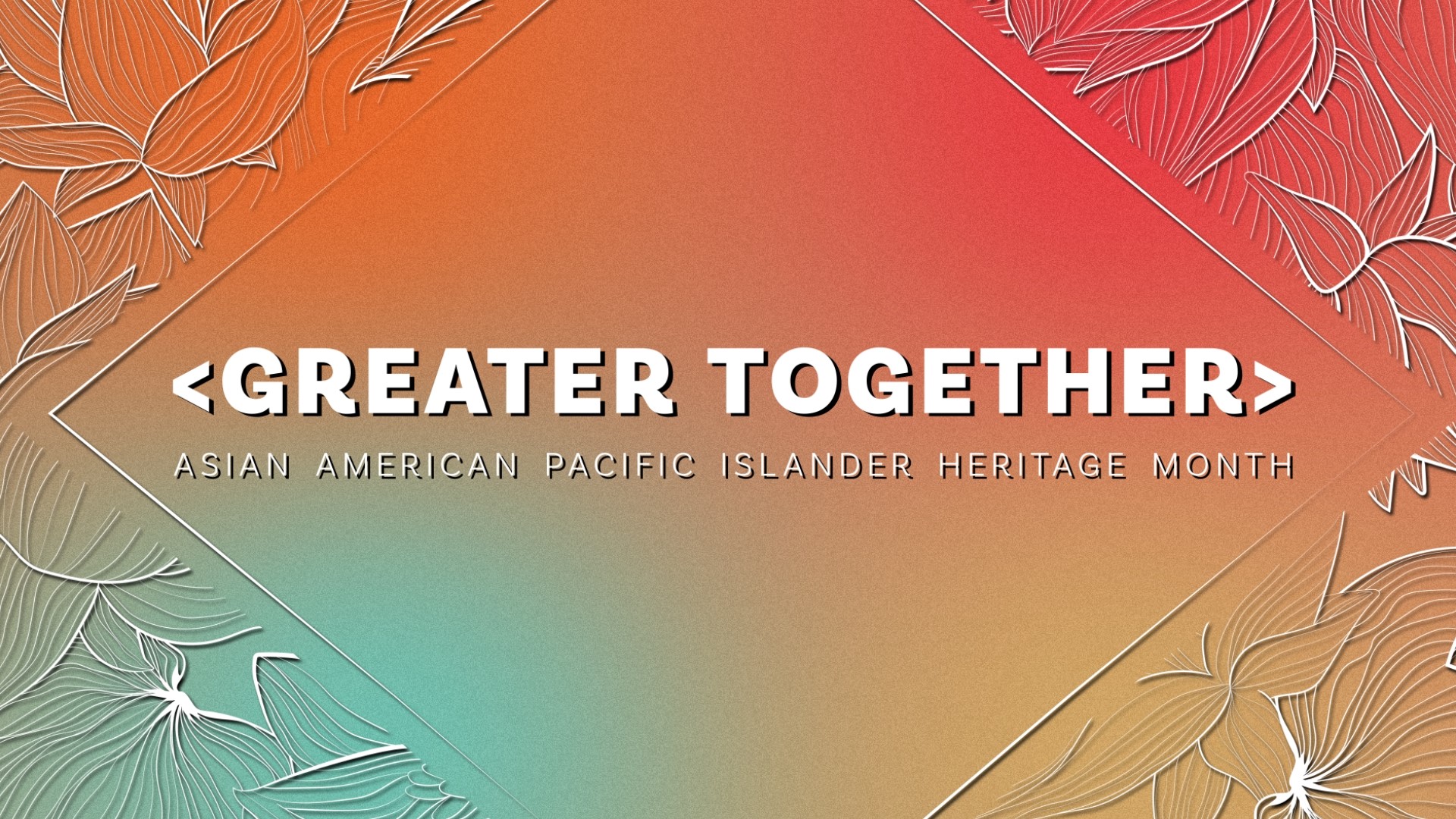ATLANTA — Asian American Pacific Islander Heritage Month comes in many names.
Whether addressed as AANHPI, AAPIDA (to include Desi Americans) or AAPI, the acronym serves to bring several identities together while working to include the many ethnicities that have helped shape the U.S. and, more locally, metro Atlanta.
Despite the different terms coined to celebrate this heritage month - the mission stays the same: to recognize a group of people who share their culture when working to be the best version of themselves.
Celebrating the many identities that share the common thread of being AAPI means going beyond the monolith to see what history, customs, and diversity exist and to recognize the effort to create a sense of belonging.
This series of stories serves to amplify AAPI voices and share how people overcome such challenges to realize they are greater than any obstacles they face and, ultimately, greater together.
To learn how to watch 11Alive's AAPI Heritage Month special, Greater Together, click here.
March 16, 2021, is a tragic date that haunts Atlanta’s Asian American and Pacific Islander community. Since then, the community has been working to progress and heal.
Three years ago, eight people, including six Asian women, were killed in shootings at three metro Atlanta spas. It sparked a resurgence of the Stop Asian Hate initiative. It's a movement that examines generational racism and racial injustice toward AAPI communities. Advocates say to keep the momentum, the initiative has also shifted to include a conversation about healing and what that means to AAPI individuals.
11Alive's Chief Culture Correspondent Neima Abdulahi worked with photojournalist Mike Nicolas and spoke with mental health counselor Daun Kwag to understand what the journey of healing could look like. Filmmaker Jeremy Thao gives insight into how solidarity can shape the conversation.
There's incredible diversity among the area's Asian-American populations. Lao, Vietnamese and Cambodian refugees came to Georgia after the Vietnam War and have grown their families in the decades since. Chinese Americans settled in Georgia after helping build the Augusta Canal. Then, there's metro Atlanta's incredible array of universities that are welcoming international students and businesses, helping the local economy flourish. A drive down the cultural corridor that is Buford Highway or a visit to Atlanta's Chinatown can offer perspective on how the diversity among the metro's AAPI community has changed the city's landscape.
To help give a sense of what it's like to be an AAPI Georgian, 11Alive brought together five people to learn about their cultures through the lens of their lived experiences. 11Alive anchor Jonathan Martin moderated the conversation.
Meet the panelists:
Rayanne Williams
Justin Settah Rodriguez
Anar Parikh
Tai Nguyen
Victoria Register
In Georgia's AAPI community, ballot access is a crucial issue every election season.
“This shouldn’t be a partisan issue," Cam Ashling, chair of the Asian-American Action Fund Georgia chapter said. "Everybody should want safe, secure voting accessible to every eligible voter."
What that looks like largely depends on grassroots efforts and counties willing to foot the bill to ensure AAPI Georgians have fair access to the ballot. With Asian Americans representing nearly 5% of Georgia's population and becoming a rapidly growing voting bloc, advocates say AAPI voters could be key to winning races - especially in this swing state.
Joe Ripley, a member of 11Alive's political team, and Jefferson Cochran, a photojournalist, examined the scope of ballot access and what some people are doing to ensure eligible AAPI voters aren't intimidated by the process.
Books a window to the world at Maomi Bookstore
Reading is a way to understand the world but access to that understanding hinges on being able to read the words on the page.
In Chamblee, Georgia, there's a rare and treasured haven where a different story is being written: Maomi Bookstore.
Owned by Yvonne Hou, who immigrated to the United States from Taiwan 30 years ago, Maomi Bookstore is a window between worlds. Nestled in Atlanta's Chinatown, the store beckons visitors to step into a culture of warmth and exploration.
"This bookstore is totally different than other regular bookstores," Hou said.
Artists bring their flavor to ATL
Page Yang is a Sacramento native who brings her hip-hop flair and Hmong-American roots to Atlanta's dance scene. She graces the stage with high-profile artists and choreographs pieces to express freedom through dance while giving back to the community by working with the National Black Arts Festival.
Chika Takai shattered glass ceilings as the first woman and first Japanese native to DJ for the Atlanta Hawks. First a dancer and now a self-proclaimed high-energy entertainer, Takai explains that her Tokyo roots and culture fit with her idea of community—and she brings that passion to crowds.
11Alive's Karys Belger and photojournalist Mike Nicolas spoke with both women to learn why they chose Atlanta as a hotspot for their craft and how they don't let the A-scene undermine their skills.
Watch videos celebrating Asian American Pacific Islander Heritage Month in the YouTube playlist below:

